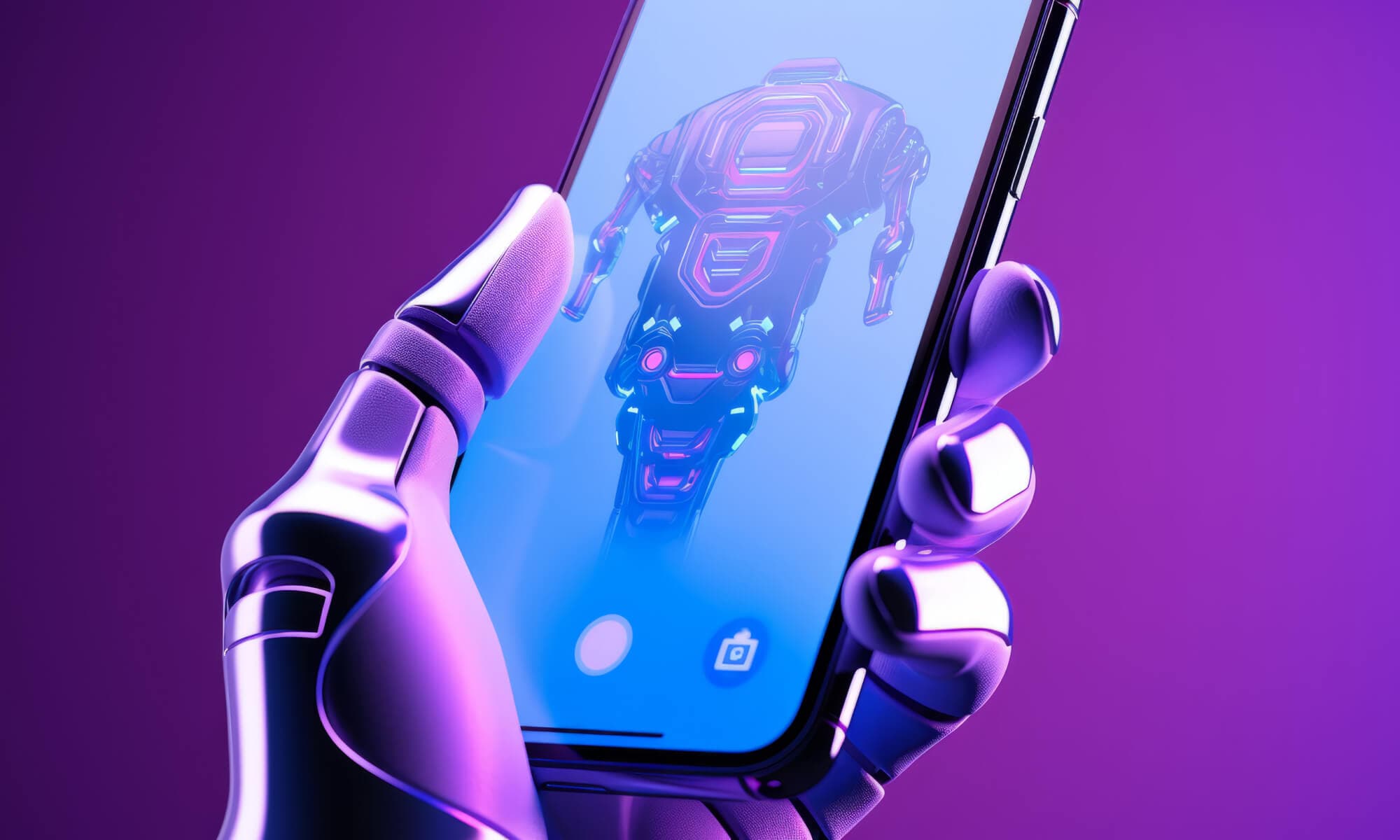Most common AI features integrated into popular smartphones from Apple, Google, and Samsung, and what does the future hold.

Written by Antonia, Head of Marketing | Consumer Electronics and Money-Saving
Last updated on 12 January 2026

AI is transforming smartphones by enhancing user experiences, improving efficiency, and enabling new functionalities. Despite what you may think, AI isn’t a brand-new concept and has been a part of your handset for a while. We’ve looked at the most common AI features integrated into popular smartphones from Apple, Google, and Samsung, including features unique to specific models and what we could expect to see in the future.
Here are some of the commonly used AI features in iPhones:
Siri: Apple's virtual assistant uses AI to set reminders, send messages, and answer questions through natural language processing.
Camera enhancements: AI improves photo and video quality with features like Smart HDR, Night Mode, Deep Fusion for texture and detail, and Photonic Engine for colour and light management.
Face ID: Uses AI and machine learning to recognise the user's face for secure authentication.
On-device processing: AI enables on-device processing for tasks like voice recognition and predictive text, ensuring privacy and faster performance. iOS 17's new transformer language model uses AI to provide more accurate autocorrect and customised predictive text input.
Health monitoring: AI helps monitor health metrics such as ECG readings, irregular heart rhythms, and blood oxygen levels through advanced sensors and machine learning algorithms. However, as impressive as these features are, they should not be used to diagnose, and you should always seek advice from a medical professional.
We’ve taken a look at the most popular AI features in Google phones:
Google Assistant: A robust AI assistant that handles various tasks, from answering queries to managing smart home devices, using natural language processing and contextual understanding.
Pixel camera: Google’s Pixel phones leverage AI for computational photography, including features like Night Sight, Super Res Zoom, and portrait mode enhancements. The Google Pixel 8 Series has features like Magic Editor, which uses AI to enable background removal, subject isolation, and other advanced photo editing capabilities directly on the device.
Real-time transcription and translation: AI enables real-time transcription and translation in apps like Google Translate and Recorder.
Adaptive battery: AI learns user habits to optimise battery life by prioritising power for frequently used apps.
Call screening: AI helps screen spam calls and assists with automated call responses.
Circle to Search: One of the latest features on the Google Pixel 8 Pro (and the Samsung Galaxy S24) is Google’s Circle to Search. Users can circle or highlight content on the screen, and AI will provide additional context and information.
Image: Samsung
Let’s take a look at the everyday AI features in Samsung phones:
Bixby: Samsung’s AI assistant that performs tasks, manages reminders, and integrates with smart home devices.
Camera AI: AI features like Scene Optimizer, Super Steady video, and Single Take mode use AI to enhance photography and videography. The Samsung Galaxy range has an Object Eraser tool that leverages AI to remove unwanted objects from photos.
Samsung Health: AI-driven features in Samsung Health app provide insights into fitness and wellness, including sleep tracking and activity recommendations.
Battery management: AI optimises battery usage by learning and adapting to user habits and app usage patterns.
DeX mode: AI enhances the DeX experience, allowing for a desktop-like environment powered by the phone, improving productivity through intelligent multitasking and app management.
Although certain manufacturers and models will have more advanced AI features than others, some AI technologies are commonly found across most (if not all) smartphones:
Voice recognition: Enhanced voice recognition capabilities for virtual assistants, enabling more natural and accurate interactions.
Accessibility: Features leverage AI for voice commands, screen readers and make smartphones more inclusive for users with disabilities.
Predictive text and typing: AI-driven predictive text and autocorrect features improve typing efficiency and accuracy.
Personalisation: AI algorithms personalise the user experience by learning user preferences and behaviours, adjusting settings, and providing recommendations.
Security enhancements: AI enhances facial recognition, fingerprint scanning, and anomaly detection to safeguard user data.
AR and VR: AI powers augmented reality (AR) and virtual reality (VR) experiences, enhancing gaming, navigation, and interactive applications.
Generally, AI makes smartphones smarter, more intuitive, and more capable. It enhances the user experience by providing personalised, efficient, and secure functionalities.
In 2026, ‘physical AI’ is the new buzzword. Tech trends for the year hint at robot puppies, self-driving cars, humanoid factory workers and much more. As far as phones are concerned, however, AI is not so much physical as it is multi-agentic.
The new year will be marked by a wave of development platforms with built-in AI, where multiple agents collaborate to make your phone faster and smarter. But the shift towards AI-powered phones comes with concerns around data privacy. Confidential computing, which protects data while it's being processed, will need to be embedded into phones to mitigate these concerns.
Whether looking to upgrade to an-powered device or a more traditional phone, don’t forget to trade in your old phone and put some cash back in your pocket. It also goes a long way towards keeping the circular economy going.

Digicam trend drives 979% spike in iPhone 4 demand and here's what you need to know before using one.

The iPhone used to define innovation. Now every new model feels the same. Is Apple’s story running out of pages?

See which Apple, Samsung and Google phones hold their value best over the first and second year on the market.